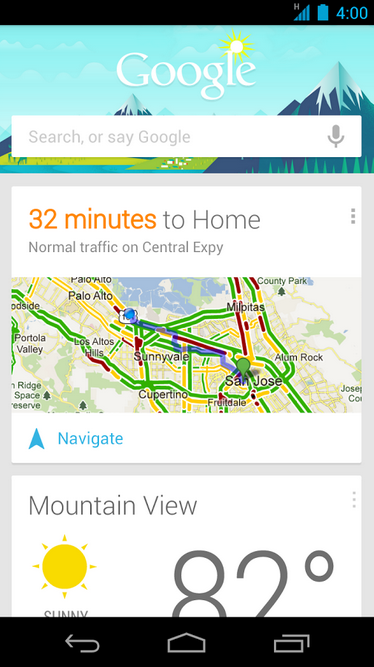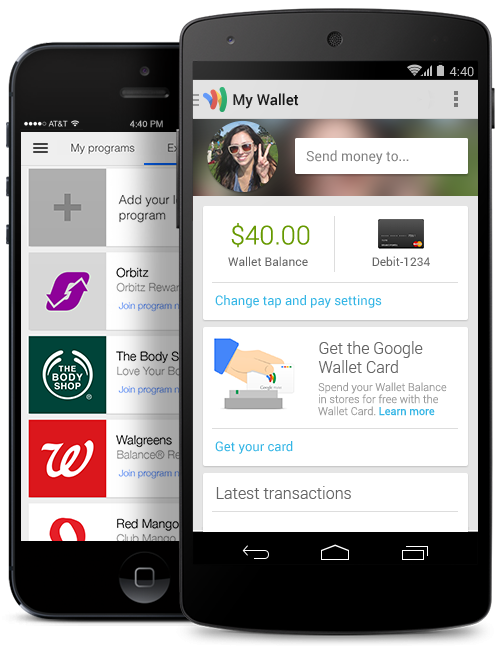Google Wants You To Pay Bills With Google Now (GOOG)

Google (NASDAQ:GOOG) is considering a bill pay feature for Google Now, the company’s digital personal assistant. A framework for the potential feature was uncovered in lines of code that appeared in a recent software update (version 3.3) to Google’s main Search app for Android devices, uncovered by tech blog AndroidPolice.
Personal finance website Mint.com now boasts over 14 million users, and it appears that Google is aiming for a slice of the personal finance pie. Critics have praised Mint for its simple integration with several banks and its ability to offer a snapshot of one's finances at a glance. However, Google Now could go one step further by offering the ability to get bills paid with a tap.
Google Now competes with Apple Inc’s (NASDAQ:AAPL) Siri as the personal assistant of choice on smartphones and other devices. It uses information gleaned from a user’s email and web searches to provide sports scores, stock prices, upcoming meetings and other tidbits of data presented as interactive “cards,” which can be dismissed with a swipe.

The software code prepares Google Now for a potential update that would also offer reminders about utility, phone and credit card bills. Information in the Google Now card would include the billed amount and due date, as well as a link to a web page where users would make a payment. Google Now would also store a user’s account number, possibly displaying the last four digits of a credit card account.
The inclusion of personal financial information could incite the wrath of advocacy groups like Consumer Watchdog, who criticized Google in 2013 for the customer information it provides to retail partners with its Wallet payment service. Google is also accused of violating state and federal wiretapping and privacy laws by users of its free Gmail email service.
The International Business Times spoke to John M. Simpson, director of the Privacy Project at Consumer Watchdog, about the potential privacy issues raised by a Google service that offered bill-payment and reminders. Simpson said Google used to separate the user data it culled from services like YouTube, Gmail and Search.
"One of the troublesome things about Google, is that since 2012, they've revised their [privacy] policy." Google has "linked it, so everything you do is available to them," Simpson said. Google has essentially "put together a big, digital dossier of everything they know about you."
Google scans Gmail messages to compile profiles which it uses to target advertisements, in addition to using that data for its Google Now service. Last week, a California judge dismissed a motion that would allow different groups to proceed with a class action suit against Google for violating wiretapping laws, forcing the plaintiffs to sue the company individually or as smaller groups.
If Google releases a bill-pay feature, it would have a valuable piece of information about users that advertisers would pay a premium for. However, Simpson says that the Mountain View, Cal.-based company would have to be tread carefully to avoid drawing the ire of the Fair Credit Reporting Act, enforced by Federal Trade Commission.
"If [Google] tried to combine the credit to try to find out what kind of payments you were making, and potentially try to target you with certain types of ads," Simpson said, "that could run afoul of the Fair Credit Reporting Act."
Simpson says that while discussing potential features of Google's products is "speculative," it raises fundamental privacy issues because of how Google handles user data. "What they do is build massive dossiers of information about you, and essentially sell you to advertisers."
Follow Reporter Thomas Halleck on Twitter @tommylikey
© Copyright IBTimes 2025. All rights reserved.



















